by Zain Jaffer
During hard times like recessions, funding for poverty alleviation projects often dry up or get reduced. When everyone is tightening fiscally, the nice to have socially relevant projects get affected negatively. Everyone is afraid of running out of cash for their core business functions.
While it is generally the government’s role to help improve the lives of their citizens, sadly many are underfunded around the world and are running large deficits especially after the pandemic stimulus of 2020-2021. Even the United States M2 money supply, a measure of how much money is circulating, is now dealing with inflation because of excess money released to the public. The US Fed has had to increase interest rates and stop quantitative easing (the practice of buying back bonds and securities) to decrease liquidity and stop inflation.
While this is all going on at the macroeconomic level, the poor continue to suffer. Aside from higher prices of basic goods and services, key poverty alleviation projects are often cut or delayed.
Take clean water, a basic resource most of us take for granted. Unfortunately, not everyone has access to it. Some people need to walk a significant distance to a water source just to haul water back to their villages in containers. Technically, water distribution has been around since the time of the Romans, with their great aqueducts, and the engineering is pretty much developed. But unless you’ve experienced not being able to turn on the tap to get clean water, you’ll take this basic need for granted. Millions of people around the world don’t enjoy that luxury.
These water projects can be as simple as hydraulic ram pumps that bring water from streams to small remote villages, or involve rural electrification for larger villages or small towns using solar or wind energy setups to run electric water pumps plus a larger tank or reservoir located in that village. This second option may require more financing.
This is where tokenization comes in. It allows for a new type of token based crowdfunding where a larger base of people around the world can own equity in these poverty alleviation projects. Take note that some of these projects can be positioned to generate cash flows while helping the poor, so these aren’t just donations. The crowdfunding tokens can represent equity in some cases.
A small scale project that brings water to a small settlement atop a hill might simply be financed by a donation. However a bigger water project for a larger town would likely be an investment, since the people there can pay for the water and it is too large to be financed by a donation. Governments don’t always have funds for these projects, so token crowdfunding might be one way to co-finance it as an option.
Token based financing is relatively new. There is still no institutional memory to rely on. Everyone doing it is basically exploring uncharted waters. Still it holds promise for unlocking liquidity and bringing capital to areas and projects that sometimes get left untouched by the traditional finance world.
Tokenization can help somewhat. It won’t solve the problem completely, but at least it gives these projects an additional finance mechanism outside the traditional ones.
